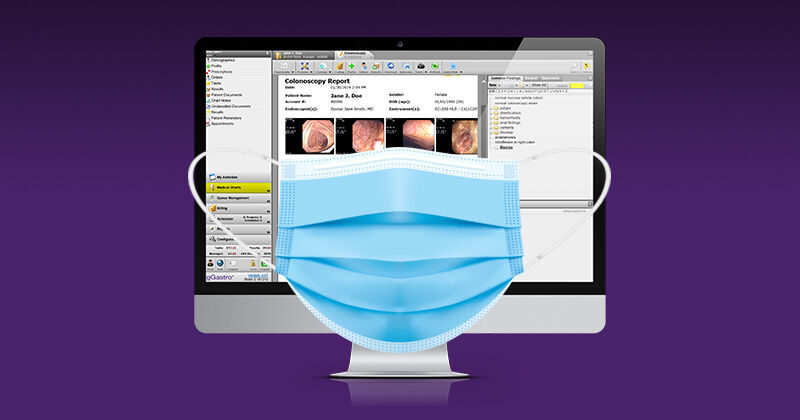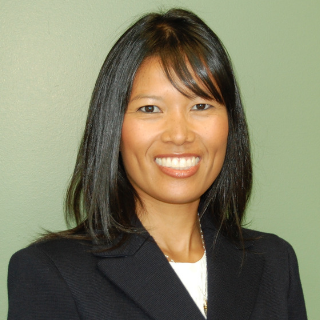Returning to GI Care in a Not-Quite-Post-Pandemic World

by Julie Servoss, MD, MPH
How will gastroenterologists manage the pending demand as patients return to care without getting burned out in the process?
The second wave of COVID-19 has proven to be more deadly than the first with daily death tolls, infections, and hospitalizations reaching all-time highs—even in the states where shutdown orders have remained mostly stringent.
Among physicians, the burden of the outbreak has been tremendous, not just the heavy demand on all healthcare workers to care for millions and millions of people sick with COVID-19, but also to continue to care for their own patients and keep business afloat in an ever-changing “new normal.”
Gastroenterology has been hit particularly hard since the early days of the pandemic, experiencing the second-largest declines in utilization and revenue, just marginally behind oral surgery, according to a study by Fair Health published in June 2020. GI doctors also did not see compensation increases and it is projected that this may remain flat in 2021—a disruption that only affected three other medical specialities.
On top of impact to the industry, many patients are coming face to face with a deadly disease other than COVID-19: colorectal cancer (CRC). Research is showing that the lull in colorectal cancer screenings due to shutdowns or transmission fears has impacted the number of deadly CRC cases expected over the next five years. At a time when CRC rates had been steadily falling among the over 50 population, screening delays of just seven to 12 months could result in a 29% increase in detected advanced stage colorectal cancer (stages III-IV). Screening delays of more than a year may result in 33% of cancers being advanced. In addition, in October 2020, the U.S. Preventive Services Task Force (USPSTF) drafted new recommendations for colon cancer screening in adults to commence at age 45 years. When this recommendation is finalized, there will be a dramatic increase in the number of patients requiring screening. Such increase, combined with those who have deferred screening during the current public health emergency, could result in further delays in care as physicians struggle to accommodate the pent up demand.
Gastroenterology practices and endoscopy centers have a heavy load to bear as the options for returning to care begin to open up. Burnout is already high risk among gastroenterologists in normal climates—burnout rates top 35 percent for the specialty. The unrelenting pressure of the COVID-19 pandemic on physicians and all front-line healthcare workers is making burnout even worse.
GI doctors and their teams need solutions to support return-to-care initiatives such as reducing patient fears of transmission and ensuring that recalls are followed through, including the hefty backlog resulting from the pandemic.
Quelling Patient Fears
Fear of going to the doctor was already an issue before the pandemic. Now the risk of transmission, particularly given documentation of new COVID-19 variants with increased infectivity, is outweighing the consequences of missed check-ups and screenings. Healthcare facilities and medical practices are averaging a 32% dropoff in patient visits since the pandemic began, according to data from the American Medical Association published in October 2020.
The solution is to make patients aware of the risks of missed appointments while also sharing the precautions being taken to reduce transmission while they receive needed care. Though that list of what to expect during a visit may be longer than it has ever been and GI practices have to develop new workflows, these tasks are essential to overcoming patients’ fears and reducing further upticks in advanced stage CRC diagnoses.
From pre-screening and post-op visits via telehealth to minimal contact office visits, there are ways to deliver a very safe clinical GI experience. Many gastroenterologists have turned to use FIT tests or CTC + stool DNA in lieu of a colonoscopy, but it’s not the right fit for every patient, especially those at higher risk of disease.
According to a November 2020 report from Gastroenterology & Endoscopy News, Folasade May, MD, PhD, MPhil, the director of the Melvin and Bren Simon Gastroenterology Quality Improvement Program at UCLA Health in Los Angeles believes endoscopic care units are the safest they ever been, citing that patients must show proof of a recent negative COVID-19 test to undergo a colonoscopy, and providers are now outfitted with personal protective equipment from head to toe. She also noted that although delaying a colonoscopy in March or April this year made sense, patients do not need to keep putting off the procedure.
Implementing a Seamless Recall Strategy
Recall is a cumbersome process for the majority of gastroenterology practices. The workflow is often very manual and can require multiple employees across multiple departments to communicate frequently and analyze tremendous amounts of patient data. Turnover is a common factor that can cause breaks in a workflow—breaks that can cause patients to fall through the cracks and miss their screenings, an important reason to ensure recall processes are automated.
Tri-County Gastroenterologist, Samuel Gunn, DO, FCOI, says he turns to technology to support his practice operations, including managing recall: “…If I completed a colonoscopy and found three polyps, I can simply click the type of polyp and recall for three years [in gGastro]. [gGastro] will then prompt me to note why I selected a three year follow-up procedure, and with just a few clicks, the letter is created and sent to the referring physician.” With comprehensive healthcare technology suites like gGastro®, gastroenterologists can set up features to pull recall lists by date and issue appointment reminders for patients who are upcoming or past due. Now, with many endoscopy centers re-opening or planning to re-open, seamless recall will be essential to helping to keep CRC rates down and ensuring all patients get back on their screening schedule.
Preventing Burnout
In a 2018 Stanford University Study, 71% of physicians surveyed cited their EHR as a significant contributor to burnout. According to a study published in the Annals of Internal Medicine, almost half of the average doctor’s workday is spent on administrative work, while only 27 percent is spent on direct clinical care.
In a study recently conducted by the Mayo Clinic, physicians are at a higher risk for burnout compared to other professionals. The risk multiplies if a physician owns his or her own practice because the sheer volume of stressors is increased when business management is included.
Taking the time to select an EHR system that is speciality-specific is integral to a return to care strategy because it offers the greatest opportunity for efficiency. According to a December 2020 article by Technology Advice, an online resource for assessment of technology verticals, “[s]pecialists often simply need less functionality [within an EHR] so they can do more, faster. If an EHR system has charting templates for that specialty, the physician will spend less time sorting through unnecessary functions and more time with the patient. As the EHR market matures, systems will likely begin to emerge that support only one or perhaps only a few different specialties. This could result in highly tailored, and highly efficient software.”
There is no “one-size-fits-all solution” to the struggles that the healthcare industry is facing with the pandemic and there certainly isn’t one for what may come. However, it is important to prioritize choosing technology and operational support designed for gastroenterology to help reduce burnout, enhance patient care, and support physicians in building a successful practice.
Creating Advanced EHR Systems that Modernize Medicine
Modernizing Medicine® builds specialty-specific EHR systems, working directly with top-rated physicians in the design and logic of the system. Modernizing Medicine Gastroenterology’s gGastro suite offers gastroenterologists the efficiency that only specialty-specific EHRs can deliver, as well as fully-integrated products and services that help support all aspects of practice management and patient care.
Learn more about how gGastro is modernizing gastroenterology and supporting GI doctors with upcoming industry changes, like virtual office visits and E/M coding changes.
